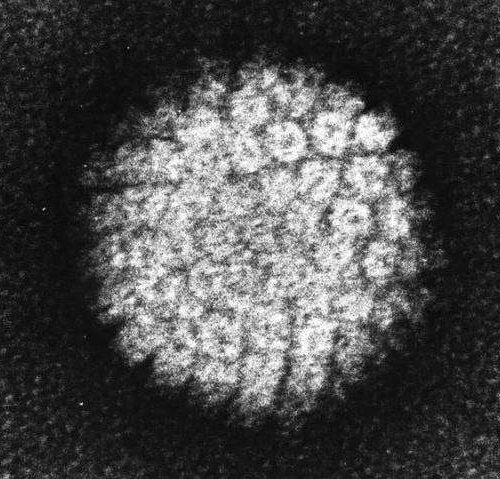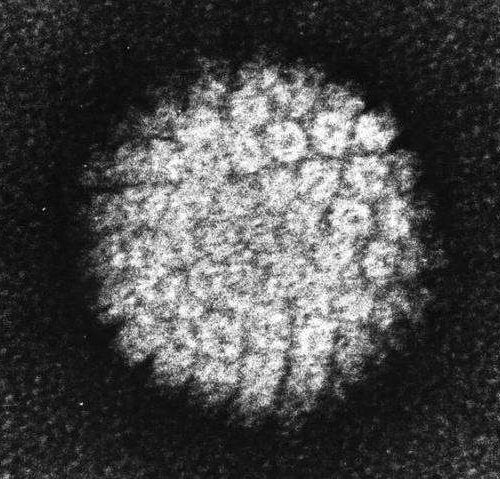by American College of Cardiology Credit: Unsplash/CC0 Public Domain In addition to causing several types of cancer, human papillomavirus (HPV) appears to bring a significantly increased risk of heart disease and coronary artery disease, according to a study being presented at the American College of Cardiology’s Annual Scientific Session (ACC.25). Evidence that HPV is linked with heart...
Tag: <span>HPV</span>
Why all young people should get the HPV vaccine—girls and boys
by Julia Brotherton, Claire Nightingale and Claire Vajdic, University of Melbourne Gardasil vaccine and box. Image: Wikipedia Cervical cancer is a devastating disease that can strike down women in the prime of their lives. Amazingly, this disease is now almost entirely preventable through vaccination and screening. But this success means that every case that does happen represents a...
Speculum exams unnecessary for HPV screening: Research finds self-sampling just as effective
by Ananya Sen, University of Michigan Electron micrograph of a negatively stained human papilloma virus (HPV) which occurs in human warts. Credit: public domain Genital human papillomavirus is the most common sexually transmitted infection in the United States and is thought to be responsible for more than 99% of cervical cancers. HPV screening usually entails a...
HPV self-sampling kits make cervical cancer screening more convenient and comfortable
by Rebecca Biason, University of Toronto Credit: Pixabay/CC0 Public Domain Human Papilloma Virus (HPV) self-sampling promises to make the process of screening for cervical cancer easier, more comfortable—and, for some, less traumatic—than a traditional Pap test, offering users more control over their reproductive health. That’s according to a recent study that found that those who are...
Q&A: Interplay between immune cells and HPV keeps skin healthy
by Mass General Brigham Papillomavirus-induced immune response blocks the expansion of mutant cells in sun-damaged skin. A large collection of mutant cells in ultraviolet-radiated skin without papillomavirus colonization (left) compared with a small number of mutant cells surrounded by immune cells in papillomavirus-colonized skin (right). Memory T cells (red), killer T cells (yellow), and mutant skin...
HPV Linked to Disturbing Changes in Human Sperm, Scientists Find
07 September 2024ByCarly Cassella (Derek Berwin/Getty Images) The human papillomavirus (HPV) is responsible for the vast majority of cervical cancer cases, but this isn’t a sexually transmitted infection that just one half of the population needs to worry about. Researchers from Argentina have found strains of HPV which put people at high risk of cancer...
No cervical cancer cases in HPV-vaccinated women
The HPV immunisation programme began in 2008 in ScotlandA new study has found that no cases of cervical cancer have been detected in young women who have been fully-vaccinated as part of the HPV immunisation programme. The Public Health Scotland (PHS) research said the HPV (human papillomavirus virus) vaccine was “highly effective” in preventing the...
Cancer experts warn about wave of HPV-related cancers in adults
by Amanda Harper, Ohio State University Medical Center Electron micrograph of a negatively stained human papilloma virus (HPV) which occurs in human warts. Credit: public domain Experts are concerned about rapidly rising rates of HPV-related throat and mouth cancers, noting that if this trend continues, they could quickly be among the most common forms of cancer in adults...
How to Talk About HPV, Oral Sex, and Cancer With Patients
Elena Riboldi December 28, 2022 Approaching the topic of orogenital transmission of human papillomavirus (HPV) with a woman presenting with a persistent cervicovaginal HPV infection is more problematic than it may seem. To not mention it, however, would be to pass over an opportunity to prevent oropharyngeal cancer. There are no clear indications from any scientific authorities...
Screening every five years safe for women who test negative for HPV, study confirms
by King’s College London Electron micrograph of a negatively stained human papilloma virus (HPV) which occurs in human warts. Credit: public domain A study of 1.3 million women in England has provided evidence to support the extension of cervical cancer screening intervals from three years to five years for those that have a negative screen...




